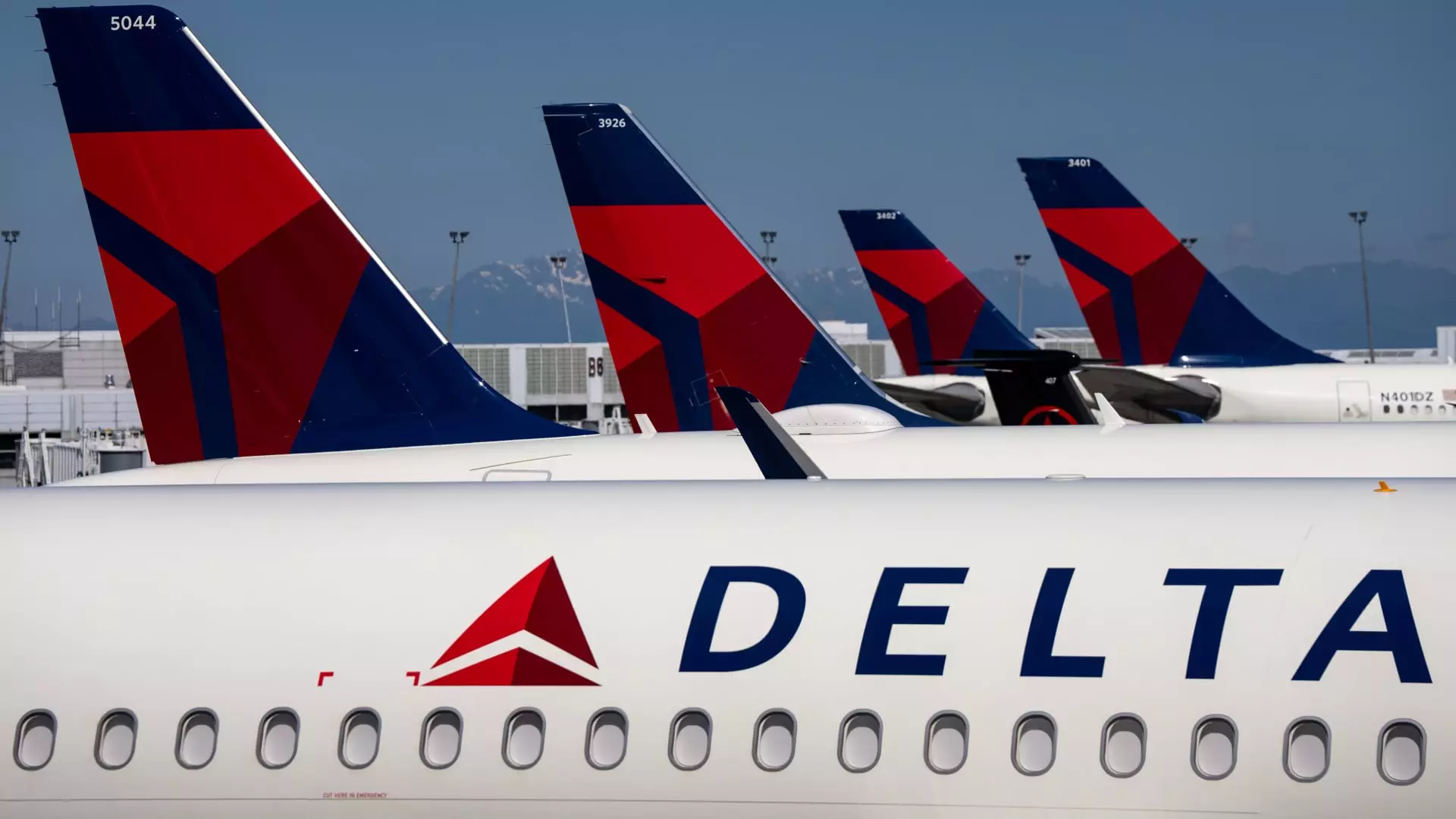In the ever-evolving world of air travel, Delta Air Lines has found itself in a precarious position as it grapples with unpredictable market forces and fluctuating consumer sentiment. With the second half of the year looming, the airline’s growth plans have encountered turbulence, prompting CEO Ed Bastian to reassess the company’s trajectory. The anticipated expansion of flight capacity has been abandoned as Delta faces disappointing bookings largely attributed to the shifting trade policies of the Trump administration. This scenario presents a stark example of how political and economic climates can significantly impact an industry that relies heavily on consumer confidence and corporate spending.
A Disheartening Revenue Forecast
Delta’s revenue forecast for the second quarter paints a sobering picture. The airline anticipates a potential decline of up to 2% compared to the previous year, contrasting sharply with Wall Street’s expectations of a modest 1.9% growth. The projected earnings per share range of $1.70 to $2.30 falls short of analysts’ predictions of $2.23 per share, reflecting a broader concern within the industry about consumer demand. This descent from previously optimistic projections indicates a significant shift in sentiment and raises questions about the viability of Delta’s growth strategy moving forward.
Just last month, Delta had expressed robust confidence in its performance. Bastian’s initial optimism painted a picture of a 2025 overshadowed by strong travel demand. However, the fact that Delta cut its first-quarter earnings outlook due to underwhelming travel demand should serve as a critical warning sign—not just for Delta, but for the entire airline industry. If the most profitable U.S. airline is struggling, the implications for its competitors could be dire.
Consumer Sentiment and Corporate Travel Dynamics
The crux of Delta’s predicament lies in the unsettling decline in consumer and corporate confidence. Bastian himself noted that after a promising January, the demand for air travel began to falter, especially in the corporate sector. Companies appear to be reevaluating the necessity of business travel as they navigate an ever-volatile economic landscape characterized by layoffs and cutbacks in government spending. This hesitancy not only shrinks the immediate market for airline services but also threatens longer-term profitability.
Travel demand, which surged at the start of the year, has seen a notable slowdown—especially evident in main cabin bookings. The shift in dynamics calls into question the practices of corporate travel departments, as well as the strategies employed by airlines to encourage business travel. In the wake of economic uncertainty, the airline industry, Delta included, must innovate to reignite interest and confidence among consumers.
Strategic Reassessments Amidst Competition
Delta’s decision to maintain flat capacity growth year-over-year rather than the previously planned expansion underscores a prudent shift towards managing risk in a precarious environment. As the first major U.S. airline to present its earnings, Delta’s results come with heightened scrutiny since they serve as a bellwether for the industry. Analysts predict that Delta’s reluctance to expand might signal broader reductions in fleet capacity and route offerings among competitors.
The words of analysts like Tom Fitzgerald and Helane Becker indicate a shared sentiment across the industry: looming capacity reductions seem inevitable as airlines contend with global trade uncertainties. This shift reinforces the necessity for airlines to protect their margins while reassessing their operational focus, especially at a time when consumers are drawn into a vortex of skepticism regarding spending patterns and travel habits.
Delta’s Resilience Amid Challenges
Even amidst these challenges, Bastian maintains a semblance of optimism regarding the airline’s profitability for the year. Notably, Delta has shown resilience; the company reported a significant increase in net income compared to the previous year, buoyed by a steady rise in revenue. While premium and international travel segments have demonstrated resilience, the question remains—will these niches be sufficient to offset the downturn in domestic business travel?
The realities of reliance on premium segments highlight the necessity for Delta to diversify its offerings and explore ways to attract the regular traveler once more. Innovations in loyalty programs, improvements in customer experience, and competitive pricing could serve as vital strategies for the airline.
In a landscape haunted by uncertainty, Delta and its peers must draw on flexibility and adaptability to survive and thrive. The stakes are high, and the ramifications of each decision on capacity and pricing will resonate throughout the industry, compelling attention to the delicate art of navigating a shifting marketplace.


Leave a Reply